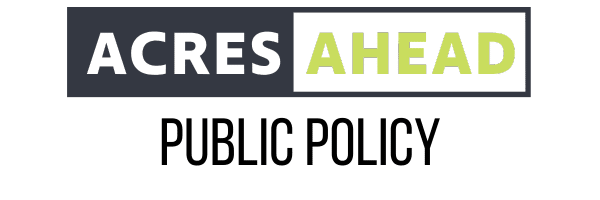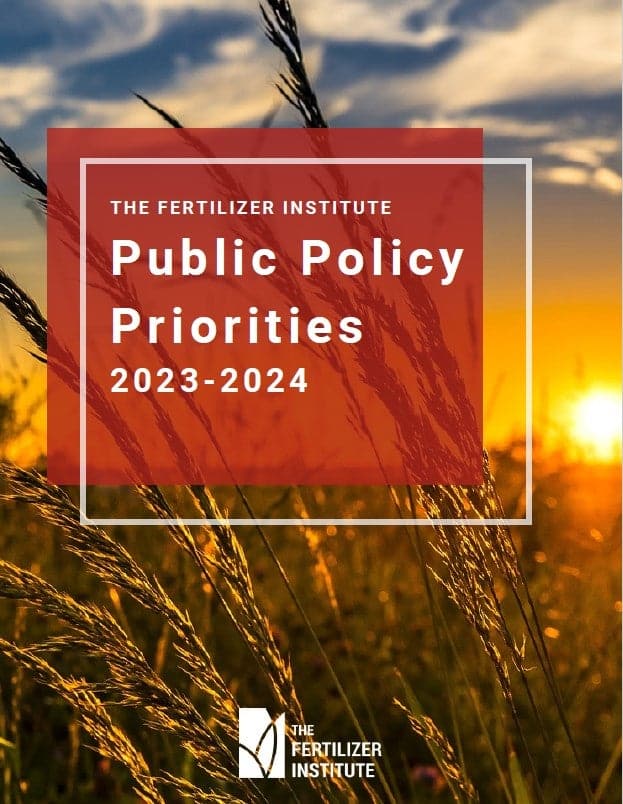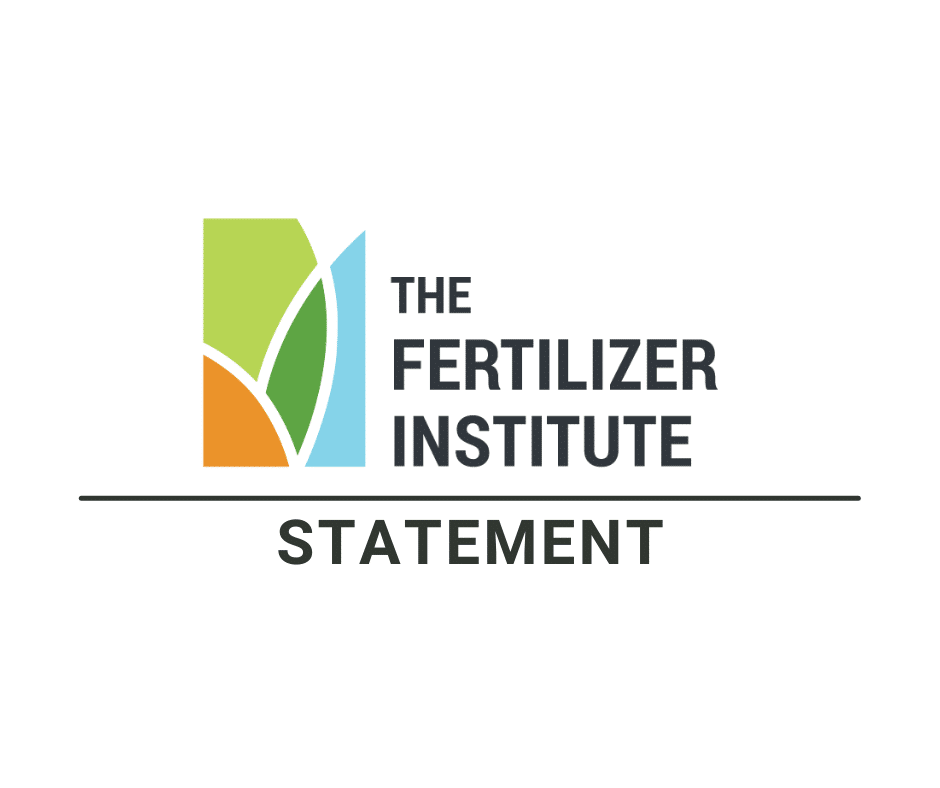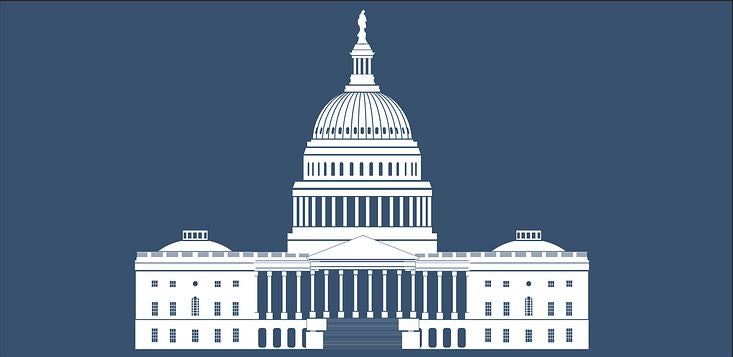Why can’t I access this file?
Possible reasons you cannot access this file:
- Your membership has expired.
- The file is restricted to certain users.
If you are seeing this message in error, please contact us.

Possible reasons you cannot access this file:
If you are seeing this message in error, please contact us.

On March 15, 2024, EPA released the draft risk evaluation under the Toxic Substances Control Act (TSCA) for formaldehyde for public comment and peer review. The EPA preliminarily determined that formaldehyde poses an unreasonable risk in 3 conditions of use (COU) related to fertilizer. TFI has developed a one-pager on formaldehyde. Please reach out to Reagan with any questions or to get involved in TFI’s response to this evaluation.

Fertilizer 101: Exploring AAPFCO’s Role with Nick Young
Join host Morgaine Mertz-Myers on “Fertilizer 101” for an enlightening conversation with Nick Young, Environmental Program Manager at the California Department of Food & Agriculture. With his extensive experience since 2007 and active involvement in AAPFCO since 2008, including a stint as AAPFCO President, Nick brings a wealth of knowledge about the role and importance of this organization in the fertilizer industry.
This episode looks into the critical function of AAPFCO (American Plant Food Control Officials), highlighting its efforts to ensure safe, effective, and properly labeled fertilizer products. Learn about the significance of accurate labeling for consumer transparency, the necessity of state involvement in AAPFCO, and recent collaborations in the realm of biostimulants.
Nick’s insights offer a behind-the-scenes look at fertilizer regulation and its impact on plant health, the environment, and our communities. Don’t miss this opportunity to enhance your understanding of what goes into the products that nourish our soil. Tune in to this engaging episode, available on Spotify, iHeartRadio, and Spreaker, and become more informed about the fascinating world of fertilizers. Subscribe now to “Fertilizer 101” and stay updated on future episodes!

Ever wonder how the fruits, veggies, and grains that feed our nation get the nutrients they need? The answer lies in fertilizers. But have you thought about how these crucial substances get to where they’re needed safely and efficiently? This week on the Fertilizer 101 Podcast, we’re shifting tracks to focus on an issue that impacts us all: Railway Safety.
Episode 1: Fertilizer & Railway Safety
Why Should You Care?
Railways are the veins that connect the heart of our agricultural centers to the rest of the country. Safe transport of fertilizer isn’t just a farmer’s concern—it affects us all!
What’s on the Agenda?
Don’t let this train of knowledge pass you by! Listen to Fertilizer 101, and get on board with railway safety today!

Chemistry is essential to food, clothing, shelter, healthcare, and energy. Chemistry provides new solutions to challenges, including cleaner air, water, and energy consumption. Without chemistry, the smartphones that keep us all connected would not exist. And as it pertains to food, we would be without the roughly 50% of crop yields that are directly attributable to chemical fertilizers. Hence, chemistry’s importance to farmers and food security. Critical chemical infrastructure facilities are essential to our quality of life, and we should ensure they have appropriate safeguards to minimize security threats.
The Chemical Facility Anti-Terrorism Standards (CFATS) program enhances security at critical chemical infrastructure facilities. In 2007, Congress and the Department of Homeland Security’s (DHS) Cybersecurity & Infrastructure Security Agency (CISA) created the CFATS program. Since then, CFATS has provided essential guidance to the private sector to identify and ensure certain facilities are taking the appropriate security measures to reduce the risk that chemicals can be weaponized by terrorists.
All Americans benefit from CFATS, yet the program, which is broadly supported by the regulated community, expired on July 27th. Congress must act quickly to reauthorize this critical security program.
On July 12th, the House Committee on Homeland Security approved H.R. 4470, which reauthorizes CFATS for two years. The bill received an overwhelming 30-0 vote in its favor. The House then passed the legislation resoundingly, only receiving a single vote against its reauthorization. Disappointingly, the Senate was unable to reach an agreement prior to the August recess and the program expired.
The CFATS program has been supported by the industry since its creation in 2007. TFI has encouraged its members to continue complying with CFATS regulations as if the program was still being enforced. Additionally, ResponsibleAg, an industry-led initiative committed to helping agribusinesses properly store and handle farm input supplies and to ensure they are compliant with environmental, health, safety and security regulations, has also communicated about the importance of continuing to operate within the compliance of the expired CFATS program regulations.
While facilities can maintain much of the CFATS regulatory compliance in the face of expiration, some critical tools and resources are no longer available to facilities. For example, access to the Chemical Security Assessment Tool has been removed, the Cybersecurity and Infrastructure Security Agency (CISA) can no longer perform inspections or provide CFATS compliance assistance, nor can it accept new names for background vetting pursuant to the CFATS Personnel Surety Program.
TFI will continue working closely with the CFATS coalition, Department of Homeland Security, and Congress to ensure this critical program is reauthorized as quickly as possible to ensure our nation’s chemical facilities have the proper tools and resources to remain secure.

ARLINGTON, VA – The Fertilizer Institute (TFI) today released its list of 2023-2024 public policy priorities for working with the Biden Administration, regulatory agencies, and a closely divided 118th Congress.
“With the 118th Congress underway, we are strongly advocating for policies that ensure the fertilizer industry is able to continue feeding the world sustainably through innovation, efficiency, and legislative and regulatory updates that are long overdue,” said TFI President and CEO Corey Rosenbusch. “We’re also very much looking forward to engaging on the Farm Bill and finding bipartisan solutions that will strengthen farmers’ bottom lines and environmental stewardship.”
TFI’s priorities are broken down into seven key areas: Economic Growth & Competitiveness; Transportation & Infrastructure; Environment; Safety & Security; Farm Bill Reauthorization; Permitting & Registration; and Innovation.
“Fertilizer is a globally traded commodity and heavily influenced by geopolitical events. Over the past two years we have seen major market disruptions that make clear the need to strengthen domestic production,” Rosenbusch continued. “The Biden Administration’s $500 million grant program is a great start, but what the industry needs is significant change in permitting policy, and ensuring producers have access to critical inputs and affordable energy.”
Those changes include reforming the National Environmental Policy Act (NEPA), which sets forth a convoluted, time consuming, and expensive permitting process; the designation by the United States Geological Service (USGS) of phosphate and potash as critical minerals; and policies that ensure safe, secure, and reliable access to affordable energy.
“The Farm Bill for us is all about conservation and continuing to push for science-backed 4R Nutrient Stewardship adoption by growers and removing the existing barriers to grower adoption,” Rosenbusch said. “Policies we want to see included are recognizing Certified Crop Advisors (CCAs) as Technical Service Providers (TSPs), which will enable greater cost-share opportunities for growers working with agricultural retailers. Additionally, we’re pushing for financial incentives to growers through use of the Conservation Service Model to utilize conservation and environmental best practices.”
Strengthening the domestic fertilizer industry and pushing for policies that promote grower adoption of nutrient stewardship practices are a heavy focus, but not the only ones eyed by TFI.
“Transportation and infrastructure are always big issues for us. Fertilizer needs to be delivered to growers exactly when and where they need it and there is not much room for error or delay,” Rosenbusch explained. “Supply chain disruptions have hit all industries hard, but fertilizer delays can lead to lower crop yields and less food. Fertilizer moves year-round via railways, highways, waterways, and pipelines, and we need a safe and reliable infrastructure network. Food security is national security, and fertilizer availability is paramount to keeping us all fed.”
Innovation and 4R research are two areas where TFI has hit the ground running, with the Plant Biostimulant Act and the ACE Agriculture Act both introduced in each chamber of Congress in March.
“Biostimulants are a relatively new innovation in agriculture,” Rosenbusch explained. “There is great potential in these products, but as with any new technology there are hurdles.”
Among the biggest of the hurdles mentioned by TFI’s Rosenbusch are the lack of a clear and consistent definition for “biostimulant” and the fact that there is no uniform framework to regulate them as plant nutrition products.
“TFI and our members are excited about biostimulants and we’re also introducing a Biostimulant Certification Program in the coming months. The aim of the program is to foster growth and farmer confidence in this innovative space,” said Rosenbusch.
The ACE Agriculture Act will help farmers by focusing United States Department of Agriculture (USDA) research on critical areas such as soil health and increasing crop yields. The fertilizer industry has long supported agricultural research through the 4R Research Fund, as well as independent research that has focused on multiple crops, geographic locations, and methods to show farmers the beneficial outcomes of new technologies and farming practices. In addition to industry efforts through the 4R Research Fund, TFI is a year and a half into a nationwide goal of having 70 million US farming acres under 4R nutrient stewardship management by 2030.
“We’ve done the research and know that these practices have both environmental and economically beneficial outcomes associated with their implementation,” Rosenbusch continued. “But these practices are not one-size fits all and not only is each farm different, but each acre on each farm is unique and growers need to feel confident when implementing new practices. We believe more research directly from the USDA on these critical issues can only help farmers continue growing that confidence and lead to wider farmer adoption.”
TFI will use its member-driven public policy priorities to educate policymakers on the realities of an essential industry that is responsible for half of all food grown around the world. “Our industry is vital to ensuring our farmers can enrich the soil and grow the crops that feed the world and its growing population,” Rosenbusch concluded. “We look forward to working with the Biden Administration and the 118th Congress.”
TFI’s full list of 2023-2024 public policy priorities can be found here.
###
The Fertilizer Institute (TFI) is the leading voice of the nation’s fertilizer industry. Tracing its roots back to 1883, TFI’s membership includes fertilizer producers, wholesalers, retailers and trading firms. TFI’s full-time staff, based in Washington, D.C., serves its members through legislative, educational, technical, economic information and public communication programs. Find more information about TFI online at TFI.org and follow us on Twitter at @Fertilizer_Inst. Learn more about TFI’s nutrient stewardship initiatives at nutrientstewardship.org and on Twitter at @4rnutrients.

Arlington, VA – The Fertilizer Institute (TFI) today released new data highlighting industry improvement in sustainability performance in key priority areas of workforce safety, energy and the environment, fertilizer use, and industry innovation.
“The 104,000 employees of the fertilizer industry work each day to produce and supply fertilizer to farmers in an effort to feed the world,” said Corey Rosenbusch, TFI president and CEO. “To feed a global population of 1 billion people by 2050, fertilizer is playing a critical role in increasing food production and land use efficiency sustainability in agriculture. 2022 also showed us how fertilizer’s role in feeding the world contributes to global stability and national security.
TFI has collected data since 2013 on metrics that provide insight into the industry’s efforts to improve safety, security, sustainability, environmental stewardship, and efficiency. The data announced today was gathered in 2022 and reflects industry operations in 2021.
“The industry is continuously working towards more sustainable operations, including efforts to decarbonize and mitigate environmental impacts,” Rosenbusch continued. “Each step of the supply chain is focused on doing more with fewer resources and the impact on communities and the environment. The data in this report highlights the achievements we’ve made in worker safety and energy and environmental metrics.”
Report highlights include:
The data includes metrics on segments of the fertilizer industry from fertilizer use on the farm, worker safety, energy and environment, and industry innovation. To learn more about this year’s report, visit tfi.org/sustainability.
###
The Fertilizer Institute (TFI) is the leading voice of the nation’s fertilizer industry. Tracing its roots back to 1883, TFI’s membership includes fertilizer producers, wholesalers, retailers and trading firms. TFI’s full-time staff, based in Washington, D.C., serves its members through legislative, educational, technical, economic information and public communication programs. Find more information about TFI online at TFI.org and follow us on Twitter at @Fertilizer_Inst. Learn more about TFI’s nutrient stewardship initiatives at nutrientstewardship.org and on Twitter at @4rnutrients.

Our thoughts and prayers are with the citizens and first responders of Winston-Salem, North Carolina.
The fertilizer industry is committed to the safe handling of all fertilizer products and supports retailers of all sizes with handling and regulatory compliance resources through ResponsibleAg. ResponsibleAg is an industry-led initiative committed to helping agribusinesses properly store and handle farm input supplies. The program helps retailers ensure they are compliant with environmental, health, safety and security regulations to keep employees, customers and our communities safe. Since its founding in 2014, ResponsibleAg has audited more than 4,300 retail fertilizer facilities.
Resources:

WASHINGTON, March 11, 2021 – The Fertilizer Institute (TFI) today released new data highlighting industry improvement in sustainability performance in key priority areas of workforce safety, energy and the environment, fertilizer use, and industry innovation.
“The fertilizer industry has always been focused on feeding the world, and as technology advances, we are looking to do that with minimal impact to our communities and environment,” said Corey Rosenbusch, TFI president and CEO. “This data quantifies improvements and tracks progress over time, allowing us to present a transparent picture of the industry in an effort to earn the public’s trust in our products and services.”
TFI has collected data since 2013 on metrics that provide insight into the industry’s efforts to improve safety, security, sustainability, stewardship, and efficiency. The data announced today was gathered in 2020 and reflects industry operations in 2019.
Report highlights include:
The data includes metrics on segments of the fertilizer industry from fertilizer use on the farm, worker safety, energy and environment, and industry innovation. To learn more about this year’s State of the Fertilizer Industry report, visit fertilizerreport.org.
#
The Fertilizer Institute (TFI) is the leading voice of the nation’s fertilizer industry. Tracing its roots back to 1883, TFI’s membership includes fertilizer producers, wholesalers, retailers, and trading firms. TFI’s full-time staff, based in Washington, D.C., serves its members through legislative, educational, technical, economic information and public communication programs. Find more information about TFI online at TFI.org.

WASHINGTON, D.C. – The Fertilizer Institute (TFI) today released its list of 2021 public policy priorities for working with the Biden Administration, as well as a closely divided 117th Congress.
“Our number one goal is to ensure the fertilizer industry is able to continue feeding the world sustainably within a legislative and regulatory environment that allows for industry growth and innovation,” said TFI President & CEO Corey Rosenbusch. “The policy priorities identified and approved by our members illustrate the industry’s focus on the safety and security of employees and the communities in which they operate, a commitment to environmental stewardship, and the efficient use of energy.”
TFI’s priorities are broken down into six key areas: safety and security; energy and economic growth; environment; innovation; trade; and transportation and infrastructure.
“While safety and security are always the number one priority for our members, the environment is also at the top of the list. Specifically, the important role that the fertilizer supply chain plays in being part of the solution to address the many challenges of a changing climate,” Rosenbusch continued. “The fertilizer industry is essential to our modern way of life and our members have made minimizing the environmental impact of crop nutrients a key pillar of how they operate. We want to see that reflected in public policy. It is absolutely critical that any climate change policies or initiatives must not impact our ability to provide farmers with the crop nutrients they need.”
Rosenbusch says that some of that is offense and some of that is defense. An example of offense is TFI’s work to promote the important role agricultural retailers have in providing agronomic assistance and expertise to farmers looking to implement sustainable fertilizer practices such as the 4Rs, which is utilizing the right source of fertilizer, at the right rate, at the right time and in the right place. “The 4Rs are a scientifically proven method of getting maximum crop yield while significantly reducing environmental impacts, such as run-off, and any state nutrient loss reduction plan must include the 4Rs as a backbone to handling crop nutrients.” Agricultural retailers are also well-positioned to assist their farmer customers interested in participating in voluntary, market-based carbon markets that incentivize the implementation of fertilizer best management practices on the farm which are proven to help sequester carbon in the soil.
On defense, Rosenbusch says it is mostly about the unintended consequences of policies. “On the issue of greenhouse gas emissions, U.S. production of nitrogen fertilizers is both energy-intensive and trade exposed. We need to make sure that policies are not put into place that send production to areas of the world that do not use more efficient production methods and lack the same type of environmental protections we have in the U.S. Greenhouse gas emissions are a global issue and discouraging efficient production in the U.S. in favor of a dirtier process overseas actually harms the environment more than it helps.”
Tony Will, Chairman of the TFI Board of Directors and President & CEO of CF Industries, Inc., added, “The fertilizer industry in the United States is proud of its legacy of ensuring the food security for our fellow citizens and for the world in a sustainable manner. Our public policy priorities are a roadmap to build on these contributions and to help address the challenges before us, particularly for the environment. We look forward to working with the Biden administration and Congress on solutions that advance our shared commitment to a better and healthier world.”
While TFI will be heavily focused on environmental policy, the issues of trade, infrastructure and safety & security all are critical to the industry, as well. “TFI supported the USMCA and are hopeful that the Biden Administration will be seeking to update existing and creating new trade agreements that promote open markets and fair competition,” Rosenbusch continued. “Trade is incredibly important specifically to our industry, but also to our grower customers that are quite literally feeding the world and need fair access to new and expanded markets.”
Infrastructure is critical to the fertilizer industry because of the just-in-time nature of demand. “Fertilizer needs to be delivered to growers exactly when and where they need it and there is not much room for error. When the optimal window opens it has to happen, and the industry must be ready and ensure the materials are all in place,” explained Rosenbusch. “Bottlenecks due to road or bridge closures or delays because of crumbling locks and dams have the potential to be devastating to applying crop nutrients when they are most needed for healthy growth and strong yields.”
TFI will use its member-driven public policy priorities to educate policymakers on the realities of an essential industry that is responsible for half of all food grown around the world. “Our industry is vital to ensuring our farmers can enrich the soil and grow the crops that feed the world and its growing population,” Rosenbusch concluded. “We look forward to working with the Biden Administration and the new Congress.”
TFI’s full list of 2021 public policy priorities can be found here.
###
The Fertilizer Institute (TFI) is the leading voice of the nation’s fertilizer industry. Tracing its roots back to 1883, TFI’s membership includes fertilizer producers, wholesalers, retailers and trading firms. TFI’s full-time staff, based in Washington, D.C., serves its members through legislative, educational, technical, economic information and public communication programs. Find more information about TFI online at TFI.org and follow us on Twitter at @Fertilizer_Inst. Learn more about TFI’s nutrient stewardship initiatives at nutrientstewardship.org and on Twitter at @4rnutrients.